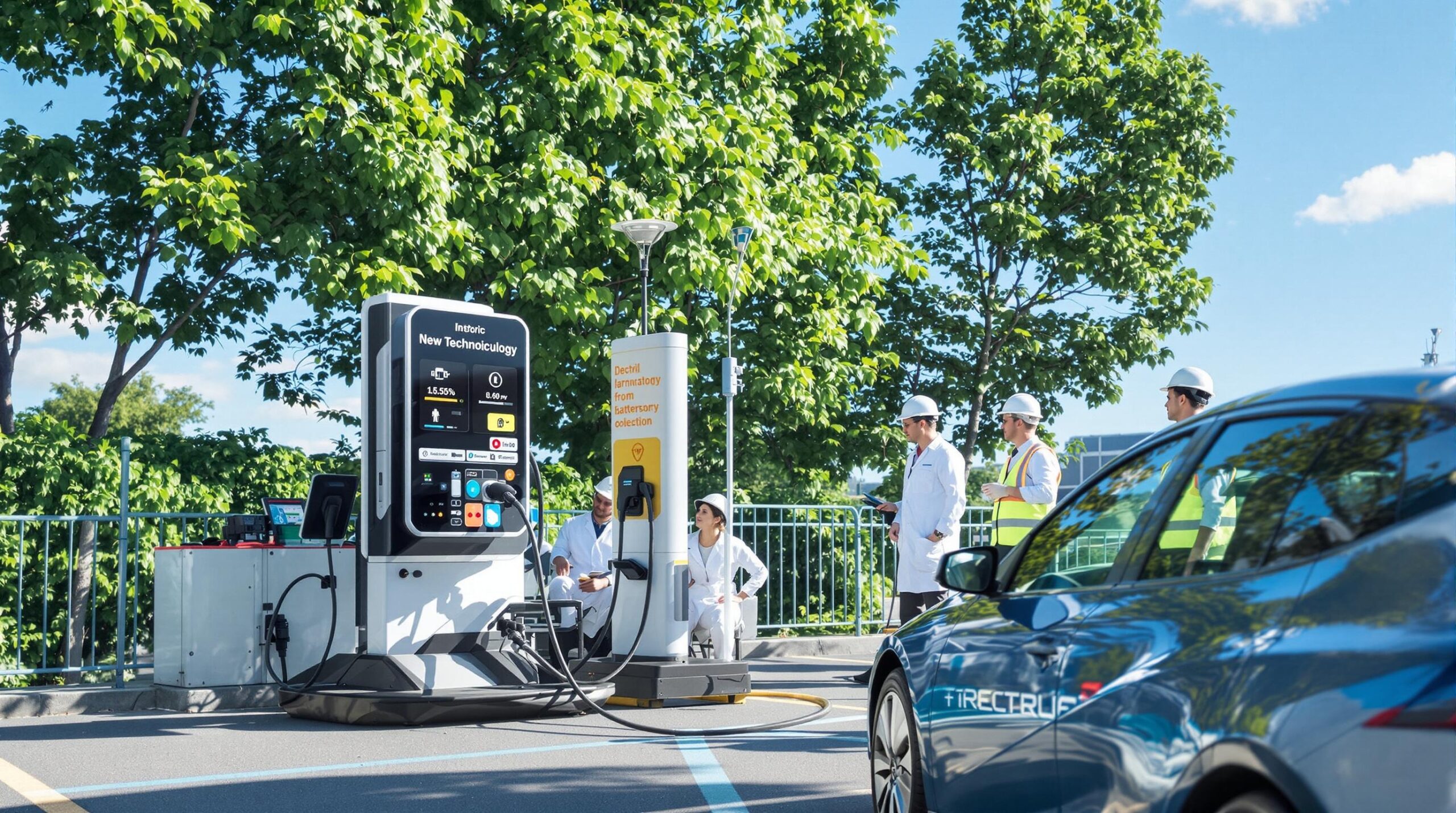Electric vehicles continue to reshape global transportation. Their popularity grows each year, driven by environmental concerns and technological advances. However, charging speed remains a notable barrier, discouraging many from switching to gasoline-powered cars. Now, a significant breakthrough in battery technology promises to reduce charging times dramatically, making electric vehicles (EVs) more appealing to a wider audience.
The Need for Faster Charging in Electric Vehicles
Consumers today desire convenience and efficiency. Most are accustomed to refueling their gasoline vehicles in mere minutes. EVs, on the other hand, typically require much longer to recharge. Even the fastest public charging stations can leave drivers waiting for 20 to 40 minutes. This delay represents a considerable obstacle for many, especially during long trips or busy schedules.
Addressing lengthy charging times is essential for broader EV adoption. Faster charging would alleviate range anxiety, a common concern among potential buyers. It would also increase the utility of EVs in commercial fleets, public transportation, and shared mobility services. Therefore, researchers and industry leaders have prioritized advancements in battery technology to deliver shorter charging times without compromising safety or longevity.
The Science Behind the Breakthrough
The recent breakthrough centers around developing novel battery chemistries and engineering techniques. Traditional lithium-ion batteries use graphite anodes, which tend to charge slowly. Researchers have now innovated with silicon-based anodes, which can accept charge much faster. These anodes increase charging speed by addressing the bottleneck in lithium-ion flow during the charging process.
Additionally, new battery management systems optimize temperature and charge distribution. Maintaining an ideal operating temperature prevents damage while enabling faster energy transfer. Some breakthroughs also involve solid-state electrolytes, which enhance ionic conductivity. Solid-state technology promises to increase both charging speed and battery safety, as the risk of overheating or fire is substantially lower than traditional liquid electrolytes.
Industry Leaders and Startups Driving Innovation
Several major companies and startups contribute to current advances in EV battery technology. Automotive giants like Tesla, Toyota, and Ford invest millions in research and development. They aim to deliver new battery solutions as quickly as possible. Additionally, startups like StoreDot, QuantumScape, and Enovix focus exclusively on next-generation batteries. StoreDot, for example, recently demonstrated a battery capable of charging from zero to 80 percent in just ten minutes.
Collaboration between automotive companies and technology firms is accelerating innovation. Partnerships between carmakers and battery producers streamline the process of turning laboratory successes into scalable, manufacturable products. Government funding and university research further drive progress, helping to resolve challenges associated with high-speed charging, cost, and long-term battery degradation.
Redefining EV Ownership with Rapid Charging
Breakthroughs in charging speed could change how drivers use their EVs. Shaving minutes or even hours off charging times eliminates one of the main disadvantages of electric vehicles. For instance, a battery capable of regaining 80 percent of its capacity in under ten minutes rivals the experiences users expect at gasoline pumps. Quick charging reduces inconvenience and increases vehicle uptime, which is especially beneficial for taxi fleets, delivery vehicles, and ridesharing applications.
Fast-charging technology also encourages the expansion of EV infrastructure. Charging stations placed at locations such as convenience stores or restaurants could see increased patronage, since drivers know their stops will be brief. Furthermore, reduced charging wait times allow for higher throughput at each charger, addressing concerns about crowded charging stations as EV adoption surges.
Overcoming Challenges: Safety and Longevity
Faster charging speed brings a new set of challenges. Rapid charge cycles can cause overheating for batteries, which poses a safety risk and could damage cells. Breakthroughs must balance speed with careful battery management to preserve cell integrity. Innovations such as improved thermal management systems and better electrolyte compositions are proving effective at maintaining safety standards.
Another concern is battery degradation over time. High-speed charging may accelerate wear and reduce a battery’s useful life. Researchers are working to develop robust battery materials that can withstand frequent and fast charging cycles. Advanced battery monitoring and smart charging systems also help extend battery lifespan by optimizing charging strategies according to real-time usage and health data.
Environmental and Economic Impact of Faster Charging Batteries
Environmental benefits extend beyond faster charging times alone. Rapid charging could further accelerate the transition from internal combustion vehicles to electric models. This shift will significantly reduce carbon emissions and urban air pollution, both critical goals for global policymakers dealing with climate change and public health concerns.
On the economic front, faster charging makes EVs more attractive to individual consumers and businesses. It reduces downtime for commercial operations, improving productivity and cost-effectiveness. Automakers that adopt this technology may enjoy a competitive advantage in an evolving automotive market. The growing EV sector is also expected to generate new jobs in battery production, infrastructure development, and maintenance.
Future Prospects and Global Adoption
Batteries that charge rapidly could soon reshape the entire electric vehicle ecosystem. Manufacturers plan to introduce next-generation battery technology in upcoming EV models over the next few years. Regulators and investors remain optimistic, seeing these advancements as a major step towards achieving ambitious carbon neutrality targets.
Widespread adoption will depend on continued collaboration between manufacturers, governments, and academic institutions. Scaling production, standardizing charging protocols, and expanding the global charging network remain key priorities. Success will accelerate the transition to sustainable mobility, benefiting societies worldwide.
Conclusion: A New Era for Electric Vehicles
A breakthrough in battery technology represents a defining moment for the electric vehicle industry. Faster charging addresses long-standing bottlenecks, making EVs more practical and appealing. As these advancements move from labs to real-world applications, we may soon witness electric vehicles achieving true parity with traditional cars. This shift will shape the future of transportation, cut emissions, and allow more people than ever to embrace clean mobility.

